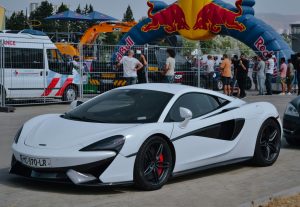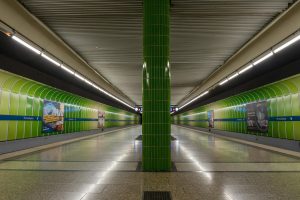Smart Cities and Integrated Transportation Ecosystems
The world is rapidly urbanizing, with more and more people moving to cities in search of better opportunities and lifestyles. This has led to a significant strain on the existing transportation infrastructure, resulting in congestion, pollution, and delayed commute times. As a solution to these problems, governments and urban planners are turning towards Smart Cities and Integrated Transportation Ecosystems. In this article, we will explore how these concepts come together to create a better living environment for urban residents.
What are Smart Cities?
Smart City is a term used to describe a city that uses technology and data to improve the quality of life for its citizens. It is a holistic approach that integrates various urban systems such as transportation, energy, water, waste management, and public services to create a sustainable and efficient living environment. The ultimate goal of a Smart City is to enhance the well-being of its residents, promote economic growth, and protect the environment.
How do Smart Cities work?
Smart Cities utilize information and communication technology (ICT) to collect, analyze, and act upon data from various sources, such as sensors, cameras, and devices connected to the Internet of Things (IoT). This data is used to optimize city operations, improve decision-making, and engage citizens in the planning and management process. With the help of data-driven systems, cities can intelligently respond to the needs and demands of their residents in real-time.
What is an Integrated Transportation Ecosystem?
Transportation is a crucial aspect of urban living, and an Integrated Transportation Ecosystem aims to make it more efficient, convenient, and sustainable. It involves the integration of different modes of transportation, such as public transport, private vehicles, and non-motorized modes, into a seamless network. By connecting people and places more efficiently, an Integrated Transportation Ecosystem can reduce commute times, decrease traffic congestion, and minimize carbon emissions.
How does it benefit a Smart City?
In a Smart City, an Integrated Transportation Ecosystem plays a significant role in improving the quality of life for its citizens. By providing efficient and reliable transportation options, it enables people to move around the city without facing congestion, delays, or pollution. This, in turn, promotes economic growth by attracting businesses and investments to the city. It also improves the health and well-being of residents by reducing their exposure to harmful pollutants.
The synergy between Smart Cities and Integrated Transportation Ecosystems
The integration of transportation systems into a Smart City is essential to achieving its goals. By using data and technology, a Smart City can optimize its transportation infrastructure and services to better meet the needs of its citizens. For example, using real-time data from sensors and traffic cameras, a Smart City can dynamically adjust traffic signals to reduce congestion and improve traffic flow. It can also provide citizens with real-time information about public transport schedules, delays, and alternative routes, helping them plan their commutes more efficiently.
Challenges and the way forward
The transition towards a Smart City and an Integrated Transportation Ecosystem is not without its challenges. It requires significant investments, collaboration between different stakeholders, and addressing privacy and security concerns. However, the benefits far outweigh the challenges. With the rapid advancements in technology and a growing focus on sustainability, Smart Cities and Integrated Transportation Ecosystems are more achievable now than ever.
In conclusion, Smart Cities and Integrated Transportation Ecosystems are the future of urban living. By leveraging data and technology, these concepts can create safer, cleaner, and more sustainable cities for everyone. As our cities continue to evolve, it is crucial to embrace these solutions and work towards building a better world for future generations.











